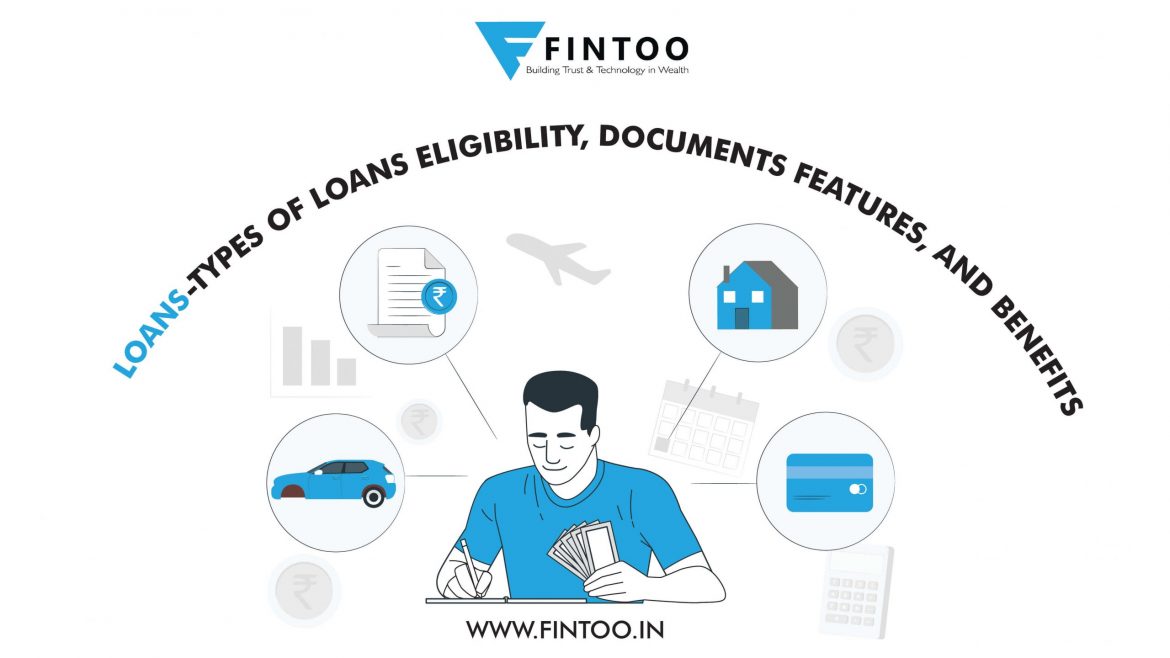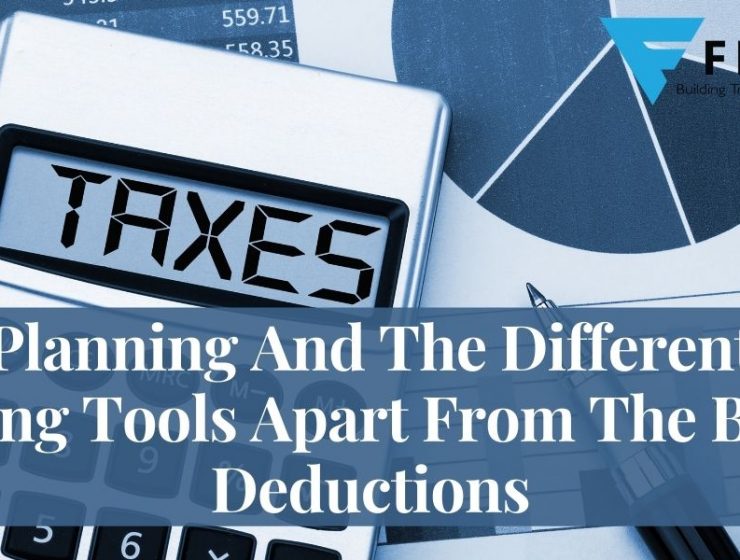

“What you do today can improve all your tomorrow” explains how loans can aid you. Sometimes we do not have the money to pursue our dreams like buying a car, purchasing a new house, and others. Availing a Loan comes in handy in such situations.
Loans are either secured or unsecured and it has three components i.e. Principal, Interest Rate, and the tenure
- Principal refers to the total borrowed amount.
- Interest stands for the rate of interest that a borrower needs to pay on the principal amount. The rate of interest varies depending on various parameters such as type of loan, credit score, financial ability, and others.
- Tenure means the total duration for which the loan is availed by the borrower.
We all have different requirements for a loan such as a few wanting to pursue their higher education, a few wanting to start their own business, buying a home, car, motorcycle or even to manage the wedding expenses. To suit each one’s requirements we all have different types of loans. In this article, we will understand the different types, eligibility criteria, documents, and how to apply for a loan.
Types of Loans
Secured Loans
As the name implies these loans are secured against collateral. Collateral refers to the valuable assets that the borrower possesses. The assets can be either car, property, equity, etc. The borrower is required to pledge his/her collateral for the money being borrowed.
The loan amount usually depends on the value of the pledged collateral. Due to any circumstances if the borrower is unable to pay the loan the lender (Bank) reserves the right to use the collateral which is pledged to recover any pending amount. Since these are secured loans the interest rate is also very low. The most common secured loans are car and property loans.
E.g. – Mr. XYZ wants a loan of Rs 2crore for his business and he pledges his commercial place to Bank for a secured loan.
Unsecured Loan
This is a type of loan where the loan borrowed is not backed by collateral security. The lender or Bank analyses various parameters of the borrower to grant a loan. These parameters are generally history, credit score, work experience, age, income, repayment capacity, and others.
Based on these parameters the eligibility criteria of the borrower for a loan is decided. As compared to a secured loan, unsecured loans possess a higher rate of interest as there is no means that a lender can recover the loan amount in case of default. Types of unsecured loans are personal loans, Loans against businesses, credit cards, and others.
For Eg. – Similarly, in the above case, Mr. XYZ doesn’t have any collateral to pledge. Based on his experience and parameters the bank will approve the loan, but this would be unsecured therefore the interest rate would be high.
The difference between a secured loan and an unsecured loan
- The loan amount is generally high for a secured loan as compared to an unsecured one.
- The tenure for a secured loan generally ranges from 15-20 years and for unsecured it is up to 5 years only.
- The documentation process in a secured loan is less tedious and time-consuming as compared to an unsecured loan.
- The speed of disbursement of secured loans is slow while in unsecured loans it is fast as compared to secured loans.
Based on the purpose
As mentioned earlier in the article we all have different reasons to avail of the loan facility. Based on each one’s purpose we have different types of loans.
Education Loan
Education loan refers to the sum of money that is borrowed to finance education. This could be either an undergraduate, post-graduate degree or any other diploma/ certification from a well-known university or Institution.
These loans are intended to cover the cost of tuition, materials to study, and also the living expense while the borrower is pursuing his/her studies. All you need is an admission pass provided by the institution to be eligible for the loan.
Education loans will help you to get financing for both domestic and international courses. Payments sometimes are deferred for an additional six months after the borrower receives the degree. As said, “Education is the passport to the future, for tomorrow belongs to those who prepare it for today” Getting an educational loan will give you the opportunity for it.
Personal Loan
As the name implies personal loan refers to an unsecured credit that is provided to the borrower for personal use. It is also known as a consumer loan which can serve multi-purposes like repaying a debt to going on vacation with family and others.
There is no limitation to availing the loan it depends on borrower capacity and also lenders assessment. A personal loan requires minimum documentation work and also the approval process is quick.
Another reason that an individual should choose a personal loan is that the borrower will have the flexibility in regards to choosing the loan tenure. You can therefore select the loan terms based on your capacity. Make sure that you opt for a shorter duration to save on the interest cost.
These loans are generally offered based on the past relationship between the lender and the borrower along with credit score, repayment capacity, profession, and others. If you are looking for a quick and easy way of availing loan then you should opt for a personal loan.
Vehicle loan
Vehicle loans are loans offered to borrowers to purchase two-wheeler and four-wheeler vehicles. You can use this vehicle either for private, commercial, or business purposes. The processing time for availing of a vehicle loan is fast and requires less documentation work.
A vehicle loan does not attract a high percentage of interest as it is a kind of secured loan. Many banks nowadays provide you with a relationship manager to assist you till you procure a vehicle. It normally takes a period of 7 days once the document is approved for the disbursal of the loan amount.
The financer or the lender will determine the loan amount considering the road price of the vehicle. Since the vehicle loan is not 100% you will have to pay the down payment of the vehicle.
The different types of vehicle loans are new commercial loans, old commercial vehicle loans, and commercial vehicle refinancing. Flexible repayment tenure, simple documentation, caters to multi needs, easy processing, no credit score compulsion are a few of the benefits of availing of a vehicle loan.
Home Loan
Home loans are meant to be funds received by the borrower to purchase a flat, land, construct property, renovate, repair an existing house. It is a secured loan that is purchased against the property by offering it as collateral.
These loans are generally for the long term and have economic interest rates. Only after repayment, the title of the property is transferred to the borrower. The lender (bank) possesses the legal right to sell the property in case the borrower defaults on the payment.
Based on Pledged Assets
Pledged assets refer to a valuable possession that is transferred by the borrower to the lender to secure the loan. This is done to reduce down payment and also helps the borrower to avail the loan on low interest.
The legal ownership of the pledged assets remains with the borrower. The pledged asset merely serves as collateral to the lender. Once the borrower repays the entire amount, the lender will transfer the pledged asset back to the borrower. Different types of pledged assets are-
Gold Loan
In India, gold is one of the most pledged assets. Many organizations offer cash against physical gold. The loan amount is decided depending on parameters such as purity, current pricing, weight, and others. The pledged asset can be either jewellery, gold coins, gold biscuits or ranges from 18K to 24K.
In terms of meaning, you can comprehend gold loan to mortgage loan where an owner avails loan to fulfil his purpose. It is generally repaid in installments unless agreed between the parties. As per Reserve Bank of India guidelines, only 90% of gold value can be given as a loan.
Generally, gold loans are short tenure and are even given to a borrower with a low credit score. The instalments need to be paid till the end of the tenure. In case the borrower fails to repay the money the lender has a right to take over the gold to recover the losses. Gold loans serve as the best source in case of urgent capital needs.
Loan Against Assets
This is also similar to gold but instead of gold here individuals pledge assets like insurance policies, FD, certificates, mutual funds, bonds, and others to borrow money. The value of the loan amount is based on the value of the assets that are pledged.
Unlike any other loan, the borrower will have to make sure that he/she repays it on time. Default on paying the loan the lender will have the right to sell the assets to recover the losses. Loans against assets are secured loans and have an economical rate of interest.
Factors that Lenders consider to approve your Loan Application
The approval of a loan depends on various parameters. The few parameters mentioned below will help you understand what is required when you plan to avail of a loan facility?
Credit Score
The credit score is one of the most important parameters for the approval of a loan. It decides whether a lender would consider your loan application. Especially this becomes mandatory when the borrower is interested in availing an unsecured loan.
Why is this so important? Well, a credit score represents the credit history of an individual (borrower). It will help the lender to analyze the borrower’s repayment history. To sum up, a credit score helps the lender to gauge and understand if the borrower will be able to pay or will default in the future.
Also Read Our Article on – Cibil Score
Income and Employment history
Repayment of the loan is every lender’s concern. Therefore monthly income and history of your employment play a very crucial role in approval for a loan. Based on history and a regular inflow of money will convince the lender that you will be in a position to repay the money and would not default. In case you are self-employed, the assumption is that your business is running well for years.
Debt to Income Ratio
DTI or Debt to income ratio refers to the percentage of the gross monthly income received by an individual, out of which monthly debt payments are paid.
E.g. – Mr. ABC earns RS 1, 20,000 /- and his payment toward debt is Rs. 60,000.
In the above example paying for another loan for Mr. ABC seems very difficult as he will require the remaining fund to run his domestic expenses. Even the banks or any other institution offering secured loan would not issue any extra loan to Mr. ABC as is alread paying 50% of his income towards debt.
Hence debt to Income ratio is also considered an important factor for approval of the loan. You should always keep your debt to Income ratio low to convince the lenders that you always have cash in hand to repay the loan.
Collateral
It refers to any valuable assets that are given by the borrower to the lender as security in return for a loan. The collateral that is pledged for the loan is always considered at market value. Based on the value of the assets the lender decides on the interest rate that will be applicable on the loan.
Collateral attached will always secure the lender and this may result in low-interest rates. An unsecured loan attracts a higher rate of interest as compared to a secured loan. Collateral serves as a guarantee for repayment of a loan.
Down Payment
The initial upfront money that a borrower makes while purchasing the good or service is called Down payment. It is ideally paid in cash and the remaining money is financed as a loan. Generally, down-payments range from 0% to 50%. Down payment helps in increasing the lender’s trust in the borrower. The lower the down payment the higher will be the loan amount and vice versa.
There are various benefits of paying a large sum of money as a down payment such as
- The higher the down payment, the lesser will be the money you borrow. So, the interest cost will be reduced.
- The monthly outflow of cash would be reduced with a higher down payment.
- More down payment will save the borrower from paying heavily towards mortgage insurance.
Features & Advantage of a Loan
- A loan can be availed for various purposes. From house to your education everything can be funded with the help of a loan.
- Different loans have different eligibility criteria. Depending on your requirements you can choose the loan you need.
- The lender is the one who decides the loan amount that will be sanctioned based on various parameters.
- Interest rate and repayment tenure are the most important factors of loan repayment.
- The lender/ bank may charge you certain fees for processing the loan amount.
- The period of grating a loan may vary depending on your eligibility criteria to fund your requirements. It can range from a few hours to days.
- Based on the Reserve Bank of India the Interest rates are determined.
- The borrower can also use a third-party guarantee instead of pledging security.
- The loan is generally paid in equated monthly installments spread over the term of the loan.
- A borrower can opt for the option to repay the loan such as part payment or full.
- The Lender has all the right to levy a huge penalty in case of default.
Eligibility for loan
How to know whether you are eligible for a loan? The eligibility criteria depend on the type of loan you want to avail of. You can consider the below-mentioned parameters to check your eligibility.
- Credit score
- Income flow
- Age should be between 23 to 60 years at the time of availing of the loan
- Assets to pledge as security. Assets could be any such as fixed deposits, insurance policy, immovable property, bonds, gold, and others.
- A healthy relationship with your lender/ bank.
- Repayment history
Documents Required
To process any loan, there are a few documents that are required to complete the transaction between the lender and the borrower.
For Salaried Applicants
- Form 16 is one of the most important documents to consider in a loan application.
- Application along with your recent photograph
- Last 6 months statement of the bank.
- Recent salary slips of the organization that you are working with.
For Self-employed employees
- Application form along with a recent photograph
- Identity and current address proof
- Proof of self-employment i.e. business
- The company profile that the person is owner/ partner
- Last 6 month’s statement from the bank
- Income tax returns of both business and personal.
- Balance sheet along with profit & loss statements of last 3 years.
How to Apply for a Loan?
Nowadays applying for a loan has become simple and hassle-free. All you need is to follow the few steps mentioned below –
- Select the lender that you would like to avail the loan from, based on your research. Also, check your eligibility criteria.
- You can visit the branch of the bank or website to apply for the loan.
- Collect and submit all the required documents along with the proofs for processing the loan.
- The bank/ lender will get in touch with you within a specific period to inform your loan application status.
Before you opt for any loan make sure that you have a plan to use the funds and their repayment. Always weigh the pros and cons to evaluate the possible options you can leverage. Get quotes from various lenders/banks and analyze interest rates and loan terms.
Also, consider the fees and penalties before making a decision. You can consult an expert or friend to understand which loan you should opt for. There are experts of the banks themselves to help you choose the loan as per your needs.
“A stitch in time saves nine”, Repayment of loan should strictly adhere to timelines as default will affect your credit score and also future borrowings. One of the biggest advantages of opting for a loan is that the government helps business owners by making interest that is payable on the loan eligible for a tax deduction.
Research and evaluation is the only key to making a sound decision. A loan can act as fuel to kick start your journey or fulfil your dreams or can result in vice versa if unpaid, hence choose wisely!
A financial planning platform where you can plan all your goals, cash flows, expenses management, etc., which provides you advisory on the go. Unbiased and with uttermost data security, create your Financial Planning without any cost on: http://bit.ly/Robo-Fintoo
Disclaimer: The views shared in blogs are based on personal opinion and does not endorse the company’s views. Investment is a subject matter of solicitation and one should consult a Financial Adviser before making any investment using the app. Making an investment using the app is the sole decision of the investor and the company or any of its communication cannot be held responsible for it.
Related Posts
Stay up-to-date with the latest information.


